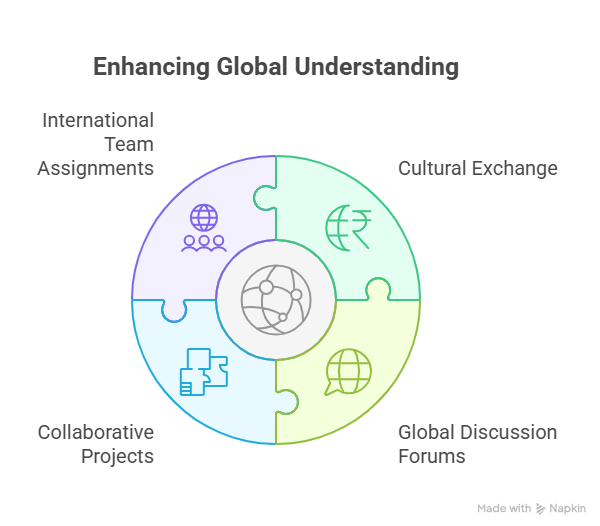The landscape of learning is undergoing a significant transformation. By 2025, it’s projected that over 50% of all educational content will be delivered through digital platforms, revolutionizing the way we learn.
This shift towards a more personalized and accessible education system is driven by advancements in technology and changing learner needs. As we move forward, understanding the key trends shaping the future of education will be crucial for educators, learners, and institutions alike.
In this article, we’ll explore the emerging trends that are set to redefine the educational landscape in 2025 and beyond, providing insights into what the future holds for online learning.
Online Education Trends in2025: The New Learning Landscape
As we step into 2025, the world of online education is witnessing a paradigm shift. The way we learn and teach is being reshaped by various factors, including technological advancements and changing learner needs.
Post-Pandemic Evolution of Distance Learning
The COVID-19 pandemic has accelerated the adoption of distance learning, making it a staple in modern education. This shift has led to significant improvements in digital infrastructure and a more accepting attitude towards online education.
Some key developments in post-pandemic distance learning include:
- Increased investment in digital learning platforms
- Enhanced user experience through better interface design
- More focus on interactive and engaging content
Accessibility and Inclusivity Advancements
E-learning advancements in 2025 are not just about technology; they’re also about making education more accessible and inclusive. This includes:
- Personalized learning paths for students with different abilities
- Multilingual support to cater to a global audience
- Features that assist learners with disabilities
These advancements are crucial in ensuring that online education is equitable and beneficial for all learners, regardless of their background or abilities.
Technological Innovations Reshaping Digital Education Tools
The digital education landscape is undergoing a significant transformation due to technological innovations. These advancements are not only enhancing the learning experience but also making it more accessible and personalized.
AI-Powered Personalized Learning Experiences
Artificial Intelligence (AI) is playing a pivotal role in creating tailored learning experiences. By analyzing student behavior and performance, AI systems can adapt the curriculum to meet individual needs.
Adaptive Assessment Systems
Adaptive assessment systems are revolutionizing the way students are evaluated. These systems adjust their level of difficulty based on student performance, providing a more accurate measure of knowledge.
Intelligent Tutoring Solutions
Intelligent tutoring solutions offer one-on-one support to students, providing real-time feedback and guidance. This personalized approach helps in addressing specific knowledge gaps.
Immersive Technologies in Virtual Classrooms
Immersive technologies, such as Virtual Reality (VR) and Augmented Reality (AR), are transforming virtual classrooms into interactive learning environments.
VR/AR Applications for Practical Skills
VR and AR are being used to teach practical skills in a simulated environment. This approach is particularly effective for fields like medicine, engineering, and the sciences.
By integrating these technological innovations, digital education tools are becoming more effective and engaging. The future of learning is being shaped by these advancements, offering students a more personalized and immersive experience.
Emerging Online Learning Platforms and Delivery Methods
The landscape of online education is evolving rapidly with new learning platforms and delivery methods. This transformation is driven by technological advancements and changing learner needs.
Hybrid and Flexible Learning Models
Hybrid learning models are gaining popularity, combining the benefits of online and offline education. These models offer flexibility and personalization, catering to diverse learning styles.
- Blended learning approaches
- Flexible scheduling
- Personalized learning paths
Microlearning and Competency-Based Education
Microlearning involves breaking down learning content into bite-sized chunks, enhancing retention and engagement. Competency-based education focuses on learners’ demonstration of specific skills and knowledge.
This approach ensures that learners are equipped with relevant skills and are able to apply their knowledge effectively.
- Focused learning objectives
- Competency-based assessments
- Personalized learning experiences
Global Collaboration Networks
Global collaboration networks are facilitating cross-cultural learning opportunities, connecting learners worldwide.
Cross-Cultural Learning Opportunities
These networks enable learners to engage with diverse perspectives, fostering a deeper understanding of global issues.

| Benefits | Features |
|---|---|
| Cultural exchange | Global discussion forums |
| Collaborative projects | International team assignments |
By embracing these emerging online learning platforms and delivery methods, educators can create more inclusive, effective, and engaging learning experiences.
Conclusion: Preparing for the Future of Online Education
As we look ahead to 2025, it’s clear that online education will continue to evolve, driven by technological innovations and changing learner needs. The trends discussed, from AI-powered personalized learning to immersive technologies in virtual classrooms, are transforming the educational landscape.
To stay ahead, educational institutions must prioritize remote learning solutions, ensuring they are equipped to provide flexible, accessible, and inclusive learning experiences. By embracing these trends, educators can create a more effective and engaging learning environment.
The future of online education is bright, with opportunities for growth, innovation, and global collaboration. As we move forward, it’s essential to continue investing in remote learning solutions, fostering a culture of lifelong learning, and promoting educational equity.
FAQ
What are the key online education trends to watch in 2025?
The key online education trends to watch in 2025 include advancements in AI-powered personalized learning experiences, immersive technologies in virtual classrooms, hybrid and flexible learning models, microlearning, and competency-based education.
How will distance learning evolve in the post-pandemic era?
Distance learning will continue to evolve with a focus on accessibility and inclusivity advancements, enabling more students to access quality education remotely. This evolution will be driven by emerging online learning platforms and delivery methods.
What role will AI play in shaping digital education tools?
AI will play a significant role in shaping digital education tools by enabling personalized learning experiences, adaptive assessment systems, and intelligent tutoring solutions. These advancements will enhance the learning experience and improve student outcomes.
What are the benefits of immersive technologies in virtual classrooms?
Immersive technologies, such as VR/AR applications, will enhance the learning experience by providing interactive and engaging experiences for students. These technologies will be particularly beneficial for practical skills training.
How will global collaboration networks impact online education?
Global collaboration networks will facilitate cross-cultural learning opportunities, enabling students to collaborate with peers from diverse backgrounds and cultures. This will enrich the learning experience and prepare students for a globalized world.
What is microlearning, and how will it shape online education?
Microlearning involves breaking down learning content into bite-sized chunks, making it easier for students to absorb and retain information. This approach will become increasingly popular in online education, particularly in conjunction with competency-based education.
How will online learning platforms adapt to the changing needs of students?
Online learning platforms will continue to evolve to meet the changing needs of students, incorporating emerging technologies and innovative delivery methods. This will include hybrid and flexible learning models, as well as personalized learning experiences.
What is the future of remote learning solutions?
The future of remote learning solutions is bright, with ongoing advancements in digital education tools and emerging online learning platforms. These solutions will continue to play a critical role in shaping the future of online education.

